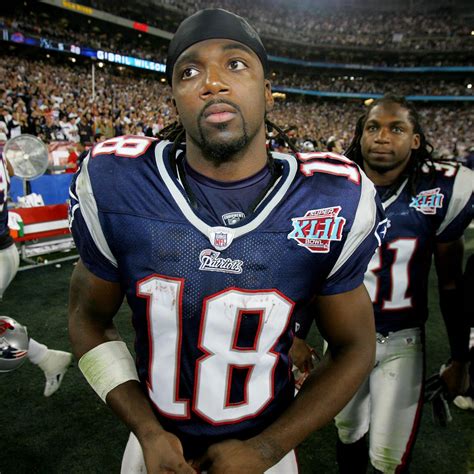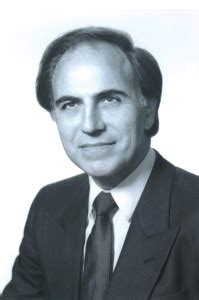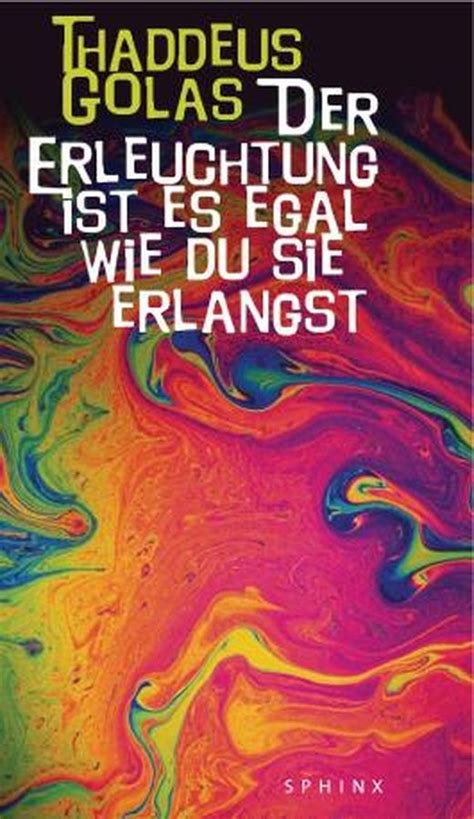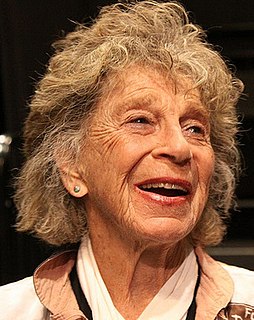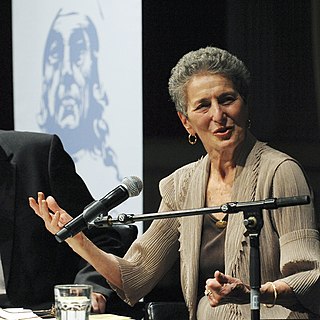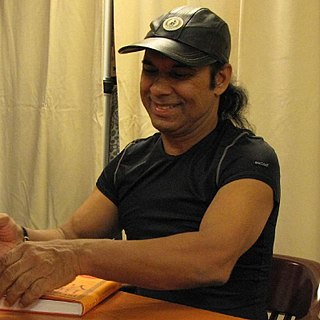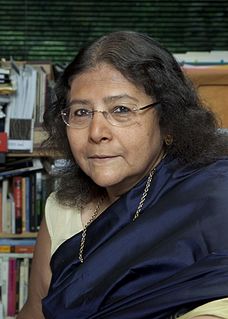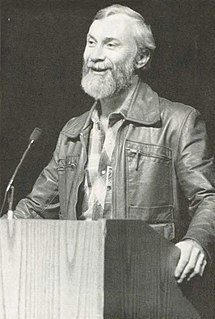Top 1186 Enlightenment Quotes & Sayings - Page 19
Explore popular Enlightenment quotes.
Last updated on December 4, 2024.
Why are you uncomfortable with the supernaturalist worldview of the biblical writers? Evangelicals don't want to just say, "Well, the inspired writers were wrong about some of their beliefs about the spiritual world and its inhabitants." That really doesn't work in a confessional situation! So instead we come up with excuses and interpretations that allow us to remake the biblical writers in our own post-Enlightenment image. I understand that impulse, but it's not honest.
I think that the whole stigma of the name may still burn deep with some of the Native people, but there are some that it doesn't bother. They actually think it brings enlightenment to the contributions that the Native Americans had in the establishment of our country, but I haven't come up with an idea. I'm not saying the name "Redskins" wasn't derogatory, but the actual changing the name to the Washington Redskins was an honorary move.
Two hundred years ago the forces of freedom challenged this idea. The children of the new enlightenment rose up to defy the tyranny of arrogant clergy and the censorship of pious bureaucrats. They boldly proclaimed that the state must be free from religious coercion and that religion must be free from state control. All individuals have the right to pursue the dictates of their own conscience. All citizens even have the right not to be religious at all.
When I read or hear of the mutual injuries of England and Ireland, I fancy it would have been a blessed thing had the sea never flowed between the two countries. Had they been all in one, surely there would have been more unity between them of interests and of feelings. But let us hope that days of peace and general enlightenment will arrive by ways past man's finding out.
The effect of the post-Enlightenment project for human society is that all human activity is absorbed into labor. It becomes an unending cycle of production for the sake of consumption. The modern concept of "built-in obsolescence" makes this clear. The cycle of production and consumption has to be kept going, and the work of the artist or craftsman who aims to create something enduring becomes marginal to the economic order.
According to Vedanta, there are only two symptoms of enlightenment, just two indications that a transformation is taking place within you toward a higher consciousness. The first symptom is that you stop worrying. Things don't bother you anymore. You become light hearted and full of joy. The second symptom is that you encounter more and more meaningful coincidences in your life, more and more synchronicities. And this accelerates to the point where you actually experience the miraculous.
Do you want to do this thing? Sit down and do it. Are you not writing? Keep sitting there. Does it not feel right? Keep sitting there. Think of yourself as a monk walking the path to enlightenment. Think of yourself as a high school senior wanting to be a neurosurgeon. Is it possible? Yes. Is there some shortcut? Not one I've found. Writing is a miserable, awful business. Stay with it. It is better than anything in the world.
You don't want to know the Truth, you want to know the truth as you understand it. This is the greatest barrier to your enlightenment. You think you already know the truth! You think you already understand how it is. So you agree with everything you see or hear or read that falls into the paradigm of your understanding, and reject everything which does not.
Do not try to correct the mind. Trying to correct the mind is like trying to correct the waves in the ocean. Can you stop the waves in the ocean? If you want to see an ocean without waves you only have to dive deeper. When you dive deep inside you will experience the stillness of the ocean. And if it is all frozen that is enlightenment.
Now that science has helped us to overcome the awe of the unknown in nature, we are the slaves of social pressures of our own making. When called upon to act independently, we cry for patterns, systems, and authorities. If by enlightenment and intellectual progress we mean the freeing of man from superstitious belief in evil forces, in demons and fairies, in blind fate--in short, the emancipation from fear--then denunciation of what is currently called reason is the greatest service reason can render.
If you believe that a nation is really better off which achieves for a comparative few, those who are capable of attaining it, high culture, ease, opportunity, and that these few from their enlightenment should give what they consider best to those less favored, then you naturally belong to the Republican Party. But if you believe that people must struggle slowly to the light for themselves, then it seems to me that you are a Democrat.
The motive for purifying yourself - that you feel spiritually impure - will prevent any genuine gain until you learn to love the impurity you started with. Can any being seriously think that he is going to pass through the infinity of time without ever making another mistake? Quite often a flash of enlightenment will give you this message: Go back to where you started and learn to love it more.
The great intellectual tradition that comes down to us from the past was never interrupted or lost through such trifles as the sack of Rome, the triumph of Attila, or all the barbarian invasions of the Dark Ages. It was lost after the introduction of printing, the discovery of America, the founding of the Royal Society, and all the enlightenment of the Renaissance and the modern world. It was there, if anywhere, that there was lost or impatiently snapped the long thin delicate thread that had descended from distant antiquity; the thread of that unusual human hobby: the habit of thinking.
They [the mathematicians of the Enlightenment] defined their terms vaguely and used their methods loosely, and the logic of their arguments was made to fit the dictates of their intuition. In short, they broke all the laws of rigor and of mathematical decorum. The veritable orgy which followed the introduction of the infinitesimals... was but a natural reaction. Intuition had too long been held imprisoned by the severe rigor of the Greeks. Now it broke loose, and there were no Euclids to keep its romantic flight in check.
It is the courage to make a clean breast of it in the face of every question that makes the philosopher. He must be like Sophocles' Oedipus, who, seeking enlightenment concerning his terrible fate, pursues his indefatigable inquiry even though he divines that appalling horror awaits him in the answer. But most of us carry with us the Jocasta in our hearts, who begs Oedipus, for God's sake, not to inquire further.
The search ends with the realization that there is no such thing as enlightenment. By searching, you want to be free from the self, but whatever you are doing to free yourself from the self is the self. How can I make you understand this simple thing? There is no 'how'. If I tell you that, it will only add more momentum to that (search), strengthen that momentum. That is the question of all questions: "How, how, how?"
Aging is like enlightenment at gunpoint. Before I had cancer, I lived my life for my art. After I had cancer, I lived my art for my life. I’ve always said dance is the breath made visible. That covers about everything because once you stop breathing and the breath is no longer visible, you stop moving.
Faith does not protect you. Medicine and airbags... Those are the things that protect you. God does not protect you. Intelligence protects you. Enlightenment. Put your faith in something with tangible results. How long has it been since someone walked on water? Modern miracles belong to science. Computers, vaccines, space stations... Even the divine miracle of creation. Matter from nothing... In a lab. Who needs God? No! Science is God!
I don't personally believe in an arrived state of enlightenment. I feel that being human is a constant practice of return. We have moments of clarity, and then we're confused. We have incredibly sensitive periods of being awake, and then we're numb. Being human is a very universal and a very personal practice of learning how to return when we can't get access to what we know.
There's also something that is often mistaken for enlightenment which is a kind of insanity. Often, people will have some kind of weird experience which is quite abnormal and think, "Oh my God, that's it, I understand everything" because they start seeing things in a very weird way and think that's how enlightened people see things as well.
Carla Hesse has given us an astonishing new look at women's struggle for independent expression and moral autonomy during the French Revolution and afterward. Denied the political and civil rights of men, literary women plunged into the expanded world of publication, answering the men's philosophical treatises with provocative novels about women's choices and chances. Lively and learned, The Other Enlightenment links women from Madame de Stael to Simone de Beauvoir in an alternate and daring path to the modern.
No government by experts in which the masses do not have the chance to inform the experts as to their needs can be anything but an oligarchy managed in the interest of the few. And the enlightenment must proceed in ways which force the administrative specialists to take account of the needs. The world has suffered more from leaders and authorities than from the masses. The essential need ... is the improvement of the methods and conditions of debate, discussion and persuasion. That is the problem of the public.
When this awareness grows, dreaming stops, by and by. When this awareness grows, the wheel moves slower and slower, because there is no point. You never move, so what is the point of travelling the whole earth? You remain the same; then desires slow down. One day it happens: the wheel is as silent, as unmoving as the hub. That is the point when enlightenment happens.
Personally, I always wondered about authors and celebrities who loudly declared there was no God. It was usually when they were healthy and popular and being listened to by crowds. What happens, I wondered, in the quiet moments before death? By then, they have lost the stage, the world has moved on. If suddenly, in their last gasping moments, through fear, a vision, a late enlightenment, they change their minds about God, who would know?
To be politically activated is to dare to care about the happiness of others and that is just about the most important activity anyone can be involved in at this time, because it changes a person - it lifts them from normal self-centeredness to a state of other centeredness. That is a good thing because it expands our perception of self. This expansion of consciousness leads to enlightenment, which is the meaning of yoga.
According to accounts of the Buddha's life, it would seem that he had a very deep relationship with nature. He was not born in the royal palace but in a park, under a sala tree. He attained complete enlightenment under the bodhi tree and left this earth to enter Parinirvana, again, between three sala trees. It would seem that the Buddha was very fond of trees.
When prayer, rituals and ascetic life are just a means of self-indulgence, they are harmful rather than beneficial. This is quite obvious to people nowadays, when it is widely recognised that fixations are not the same as valuable and laudable observances. One should not pray if that prayer is vanity; rituals are wrong when they provide lower satisfactions, like emotional stimulus instead of enlightenment; he or she should not be an ascetic who is only enjoying it.
Historically, the idea that you take something novel and you break it has been seen as the ultimate rejection of Enlightenment values, of progress, of civilization - because how could you possibly move forward if you break technology? I think that that misses the point, that if you introduce any kind of technology, what you're introducing is a new way of living and the consequences of that new way of living for people who were enmeshed in a different way of living need to be thought through.
Climbing is a heroic liberating act; and height spontaneously symbolizes things of high value, be it in the value of worldly power or of spirituality. To rise in an elevator, balloon, or airplane is to experience being liberated from weight, sublimated, invested with superhuman abilities. In addition, to rise from the earth is to approach the realm of light and overview. Therefore the negative overcoming of weight is at the same time the positive achievement of enlightenment and an unobstructed outlook.
Know that originally none of us are from Earth. We all have natural origins off the planet. We are having human experience, but one thing we're going to have to come to understand - and I know that's a lot for some people - is that our heritage is within the galactic origin. We are going to come into alignment with that by remembering our individual origins - and that's going to be a very important part of our enlightenment process.
Go beyond reason to love - it is safe. It is the only safety. Love all you can, and when you are ready all will be shown to you. The state of mind that most needs enlightenment is the one that sees human beings as needing to be guided or enlightened. The sin that most needs to be loved and forgiven is the state of mind that sees human beings as sinners.
Climbing is the lazy man's way to enlightenment. It forces you to pay attention, because if you don't, you won't succeed, which is minor - or you may get hurt, which is major. Instead of years of meditation, you have this activity that forces you to relax and monitor your breathing and tread that line between living and dying. When you climb, you always are confronted with the edge. Hey, if it was just like climbing a ladder, we all would have quit a long time ago.
In dealing with the arrogant asserter of doubt, it is not the right method to tell him to stop doubting. It is rather the right method to tell him to go on doubting, to doubt a little more, to doubt every day newer and wilder things in the universe, until at last, by some strange enlightenment, he may begin to doubt himself.
It is a special kind of enlightenment to have this feeling that the usual, the way things normally are, is odduncanny and highly improbable. G.K.Chesterton once said that it is one thing to be amazed at gorgon or a griffin, creatures which do not exist; but it is quite another and much higher thing to be amazed at a rhinoceros or a giraffe, creatures which do exist and look as if they don't. This feeling of universal oddity includes a basic and intense wondering about the sense of things.
[Pascal] was the first and perhaps is still the most effective voice to be raised in warning of the consequences of the enthronement of the human ego in contradistinction to the cross, symbolizing the ego's immolation. How beautiful it all seemed at the time of the Enlightenment, that man triumphant would bring to pass that earthly paradise whose groves of academe would ensure the realization forever of peace, plenty, and beatitude in practice. But what a nightmare of wars, famines, and folly was to result therefrom.
So the single most vital step on your journey toward enlightenment is this: learn to disidentify from your mind. Every time you create a gap in the stream of mind, the light of your consciousness grows stronger. One day you may catch yourself smiling at the voice in your head, as you would smile at the antics of a child. This means that you no longer take the content of your mind all that seriously, as your sense of self does not depend on it.
Enlightenment is like witnessing the brilliant sun for the first time in the morning. It is like seeing the beautiful flowers that grow in the woods , the frolicking deer, a bird flying proudly, or fish swimming. Life is not all that grim. In the morning when you brush your teeth, you can see how shiny they are. Reality has its own gallantry, spark, and arrogance. You can study life while you are alive. You can study how you can achieve the brilliance of life.
[The] erroneous assumption is to the effect that the aim of public education is to fill the young of the species with knowledge and awaken their intelligence, and so make them fit to discharge the duties of citizenship in an enlightened and independent manner. Nothing could be further from the truth. The aim of public education is not to spread enlightenment at all; it is simply to reduce as many individuals as possible to the same safe level, to breed and train a standardised citizenry, to put down dissent and originality.
Many of us have a tendency to deny any negative feelings. We judge them as "bad" or "unenlightened" when, in fact, they are our stepping stone to enlightenment. Our so-called negative feelings or attitudes are really parts of ourselves that need recognition, love, and healing. Not only is it safe and healthy to acknowledge and accept all of our feelings and beliefs, it is necessary, if we are to get in touch with the fears and pockets of blocked energy that are holding us back from what we want.
I grew up in a whaling town. We didn't stop whaling in Australia until 1978. And I've always lived in fishing communities. You could say I'm from the Redneck Wing of marine conservation. Everything I know about the sea I learnt at the end of a spear or a hook. Seems weird to admit it, but I hunted and killed my way to enlightenment. Eventually you see where you've been. All the traces you leave are gaps and absences. And it's a sick feeling, knowing you might bequeath a full dose of Nothing to those who come after you.
"Moksha" is really a satire of myself. I've always been interested in Eastern spirituality. I'm particularly interested in enlightenment and the spiritual pursuit to liberate ourselves (I'm a Buddhist at heart). During my teenage years, I imagined I'd end up going to India to become a yogi; study with the last living saints in a cave; give up all my worldly possessions; learn to levitate. And there's still part of me that can see myself "disappearing" for some years at an ashram somewhere.
I'm not sure that Eastern culture does either, but I've never lived in India etc so I couldn't tell you. I can say we definitely don't. So people will sometimes come in contact with something strange and think, "Oh, it must be like this" and have a lot of fantasies about it, and somebody who sort of looks like our fantasy version of what enlightenment is can be very convincing in seeming like they've got something and then play that role.
Enlightenment is always through surrender, but surrender is achieved through intelligence. Only idiots cannot surrender. To surrender you need great intelligence. To see the point of surrender is the climax of insight; to see the point that you are not separate from existence is the highest that intelligence can give to you.
I began researching and writing what I intended as a book-length essay entitled Fascination and Liberation, exploring the question of whether there is a conflict between creativity and the Eastern form of enlightenment. I don't know if I'll ever finish that essay, because I had an experience, after I'd written two or three chapters, in which it seemed to me that my psychic antibodies decisively rejected Buddhism. Interestingly, the rejection felt as if it happened in Zen terms.
Men towering high above such political pygmies, men of refinement, of culture, of ability, are jeered into silence as mollycoddles. It is absurd to claim that ours is the era of individualism. Ours is merely a more poignant repetition of the phenomenon of all history: every effort for progress, for enlightenment, for science, for religious, political, and economic liberty, emanates from the minority, and not from the mass. Today, as ever, the few are misunderstood, hounded, imprisoned, tortured, and killed.
In a very philosophic sense I think doing the work is itself a good thing. But at the end of the day, since we're taking other people's shekels to do it, and their work is being able to make a return out of it, it forces you to consider the fact that you're doing it for other people. The whole construct is built around the assumption that it's going to get shared, and that someone else is going to find value in it - entertainment, catharsis, enlightenment, or whatever.
I think real enlightenment is total sanity, a kind of acceptance of what actually is. It does involve a kind of different way of looking at things. As I've done this Zen practice for years and years, I've acquired what I realize is an almost upside down view of life compared to what most people think, which is just what I used to think it was too. It's not really an insane view, at least I hope it's not.
...I am afraid that education is conceived more in terms of indoctrination by most school officials than in terms of enlightenment. My own belief is that education must be subversive if it is to be meaningful. By this I mean that it must challenge all the things we take for granted, examine all accepted assumptions, tamper with every sacred cow, and instill a desire to question and doubt. Without this the mere instruction to memorise data is empty. The attempt to enforce conventional mediocrity on the young is criminal.
The zazen I speak of is not learning meditation. It is simply the Dharma gate of repose and bliss, the practice-realization of totally culminated enlightenment. It is the manifestation of ultimate reality. Traps and snares can never reach it. Once its heart is grasped, you are like the dragon when he gains the water, like the tiger when she enters the mountain. For you must know that just there (in zazen) the right Dharma is manifesting itself and that, from the first, dullness and distraction are struck aside.
...photographers who carry 60 pounds of equipment up a hill to photograph a view are not suffering enough, although their whining causes enough suffering among their listeners. No, if they really expect us to respect their search for enlightenment and artistic expression, in [the] future they will drag the equipment up the hill by their genitals and take the view with a tripod leg stuck through their foot.
To know people is wisdom, but to know yourself is enlightenment. to master people takes force, but to master yourself takes strength. to know contentment is wealth, and to live with strength resolve. to never leave whatever you are is to abide, and to die without getting lost- that is to live on and on.
Would it not be prudent to get our civilization tools together, and see how much stock is left on hand in the way of Glass Beads and Theology, and Maxim Guns and Hymn Books, and Trade Gin and Torches of Progress and Enlightenment (patent adjustable ones, good to fire villages with, upon occasion), and balance the books, and arrive at the profit and loss, so that we may intelligently decide whether to continue the business or sellout the property and start a new Civilization Scheme on the proceeds.
The differences between religions are only differences involving the pathways that lead toward the practice of directly experiencing higher levels of perception and understanding. All religions are paths to a metaphorical mountain-top variously named Wisdom, enlightenment, self-realization, the kingdom of heaven, righteousness, etc. Differences that lead to violence and persecution are based on a corrupted relationship to the teachings and practices of religion.
You discover the goal of existence by living it. The present is the only time when you can evolve, experience the divine, expand your awareness, or reach enlightenment. But this cannot be a haphazard journey that falters and wanders off the path. It's easy for that to happen when a crisis develops. Sudden losses and setbacks shake everyone up; those who keep moving forward are buoyed by knowing that their path cannot be destroyed, only interrupted.
We must therefore turn to history for enlightenment; here we find that none of the proclaimed anarchist groups correspond to the libertarian position, that even the best of them have unrealistic and socialistic elements in their doctrines. Furthermore, we find that all of the current anarchists are irrational collectivists, and therefore at opposite poles from our position. We must therefore conclude that we are not anarchists, and that those who call us anarchists are not on firm etymological ground, and are being completely unhistorical.
Joy is what we are, not what we must get. Joy is the realization that all we want or need in life has been etched into our souls. Joy helps us see not what we are "going through," but what we are "growing to"-a greater sense of understanding, accomplishment, and enlightenment. Joy reveals to us the calm at the end of the storm, the peace that surpasses the momentary happiness of pleasure. If we keep our minds centered on joy, joy becomes a state of mind.
All countries must be governed by the modern people; they must be governed by the progressive people; they must be governed by those who believe in the reason and science; they must be governed by the compassionate and just, by the ethical and honest, by the nonviolent and peaceful people; they must be governed by the libertarians; they must be governed by the people who believe in the enlightenment and who refuse to shape the society based on some childish religious stories!


